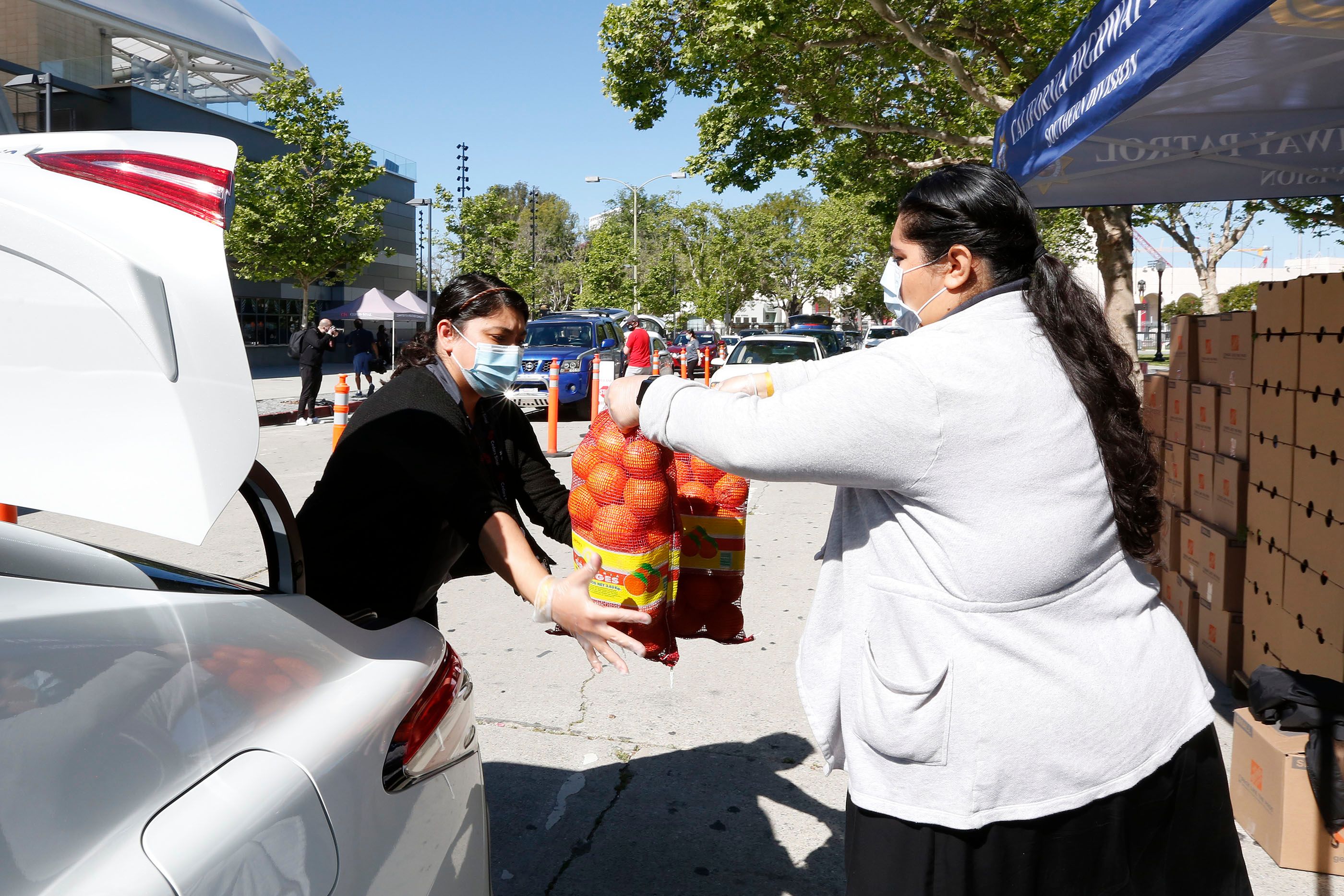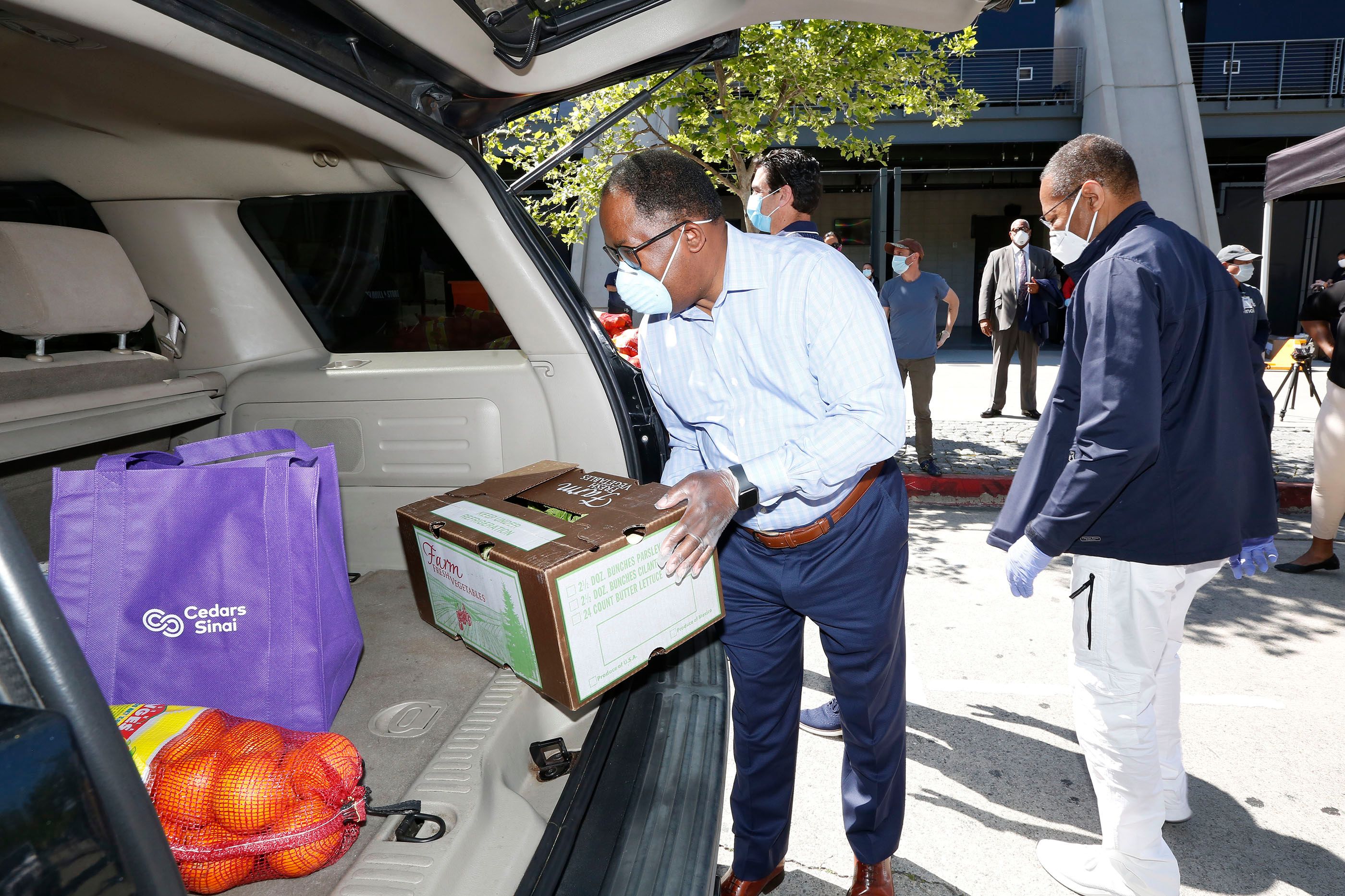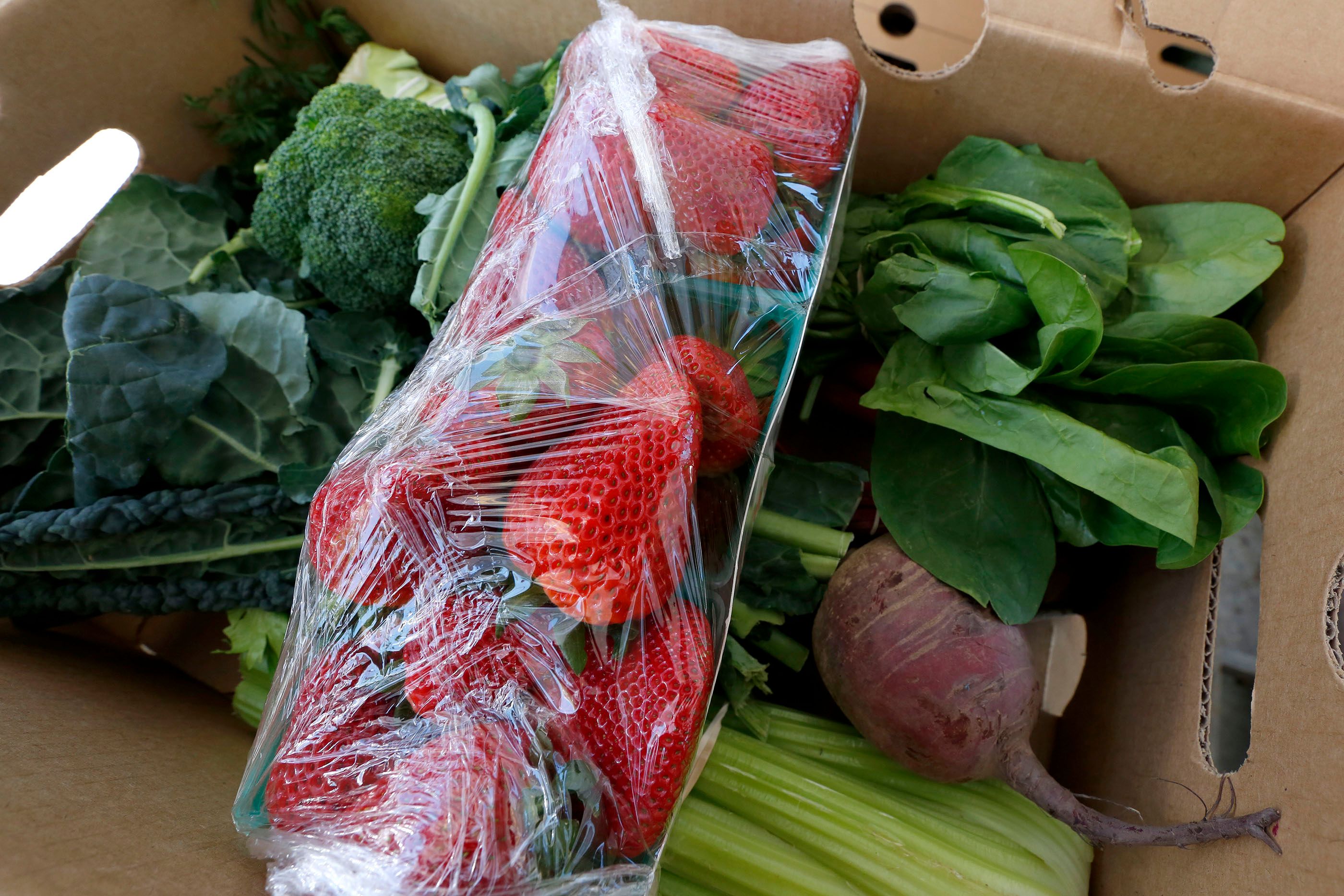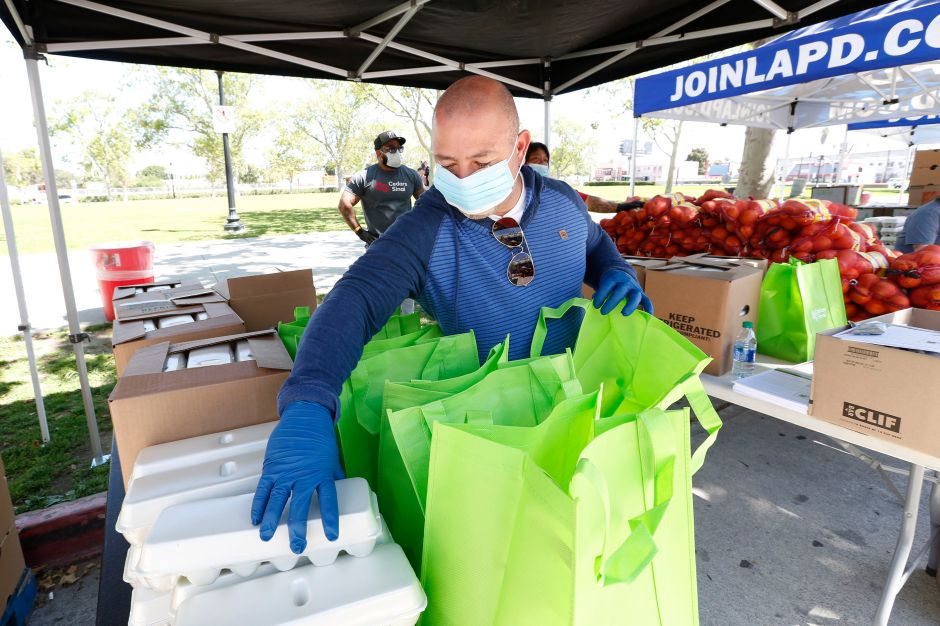The restrictions imposed on producer markets have made people go less to buy
Before the coronavirus, Silverio Zarabia sold the vegetables and fruits that he himself grows in 27 ‘Fsea armerskets ’, As small-scale open-air markets are known in English, but since the pandemic began, it only sells for six.
"Sales fell by 50%. I have had to cut my 15 employees' work hours, ”says Silverio, who grows his vegetables in Riverside County, but sells them at Los Angeles County markets.
Most of the small producers of vegetables and fruits market the product of their harvest in the Farmers markets. However, when California Governor Gavin Newsom declared an emergency for COVID-19 in early April, and cities and counties began to establish their own restrictions to keep social distance, stay home, and demand the use of face masks and gloves. , the small producers received a strong shock to their income.

"Many markets have closed, and those that remain open only allow a certain number of buyers to enter to avoid contagion. Because there are lines to enter, people get desperate because they don't want to wait 20 minutes, and they better leave, "says Silverio.
At the moment, this small producer has managed to avoid the dismissal of his workers because delivery orders have been issued, but he does not know for how much longer he can pay his equipment.
“All the people with businesses have been affected. I applied for one of those loans that the government is offering to help us, but it has not come to me. The only thing I have received is the economic stimulus check for $ 1,200 ”, he explains.
Originally from Guerrero, Mexico, Silverio has been with his business for four years Divine Harvest Family Farm. "I rent a piece of land in Ontario where I plant all kinds of vegetables that I sell in the Farmers markets. This year we had finally achieved financial stability, but this epidemic caught us off guard. ”

A little relief
In support of small gardeners and low-income families, supervisor Mark Ridley-Thomas delivered fresh fruits and vegetables to 1,100 families in South Los Angeles experiencing financial insecurity due to COVID-19.
This is the 'Farm Boxes' program and to drive it, the supervisor had the support of Cedar-Sinai Hospital and the Frederic D. Rosen and Nadien Schiff Family Foundation, as well as Sustainable Economic Enterprises of Los Angeles (SEE-LA) , the organization that groups farmers' markets, and the local UNITE-HERE union 11. Many of the members of this union have had their hours reduced due to the coronavirus crisis.
Every week for the next month, Farm Boxes will be delivered with oranges, all kinds of berries, between five and seven varieties of vegetables as well as a dozen eggs.
“During this pandemic, families face financial stress. This alliance is intended to ease the financial burden throughout South Los Angeles by providing healthy food options that they can cook at home, ”says Los Angeles County Supervisor Mark Ridley-Thomas.
"Meanwhile, local producers have the opportunity to distribute their vegetables and keep their businesses afloat. It's a win for everyone"He points out.

Concern
Ismael Castellanos with 20 years earning a living as a small producer and seller of his harvest in the Farmers Markets of Los Angeles County says that coronavirus has affected her income by 40%. “I am only selling on weekends. We really want this pandemic to go away soon. We are worried. Two families, my brother's and mine, depend on the vegetables and fruits that we grow in Ontario – Riverside County.
The few days that allow them to sell, the small farmers of the Farmers markets They wear masks and gloves. "Buyers who enter the market also arrive protected," explains Ismael.
In the city of Los Angeles, farmers' markets to be able to open their doors to the public have to comply with a series of hygiene requirements such as social distance, hand-washing stations and signs that explain health protocols.







